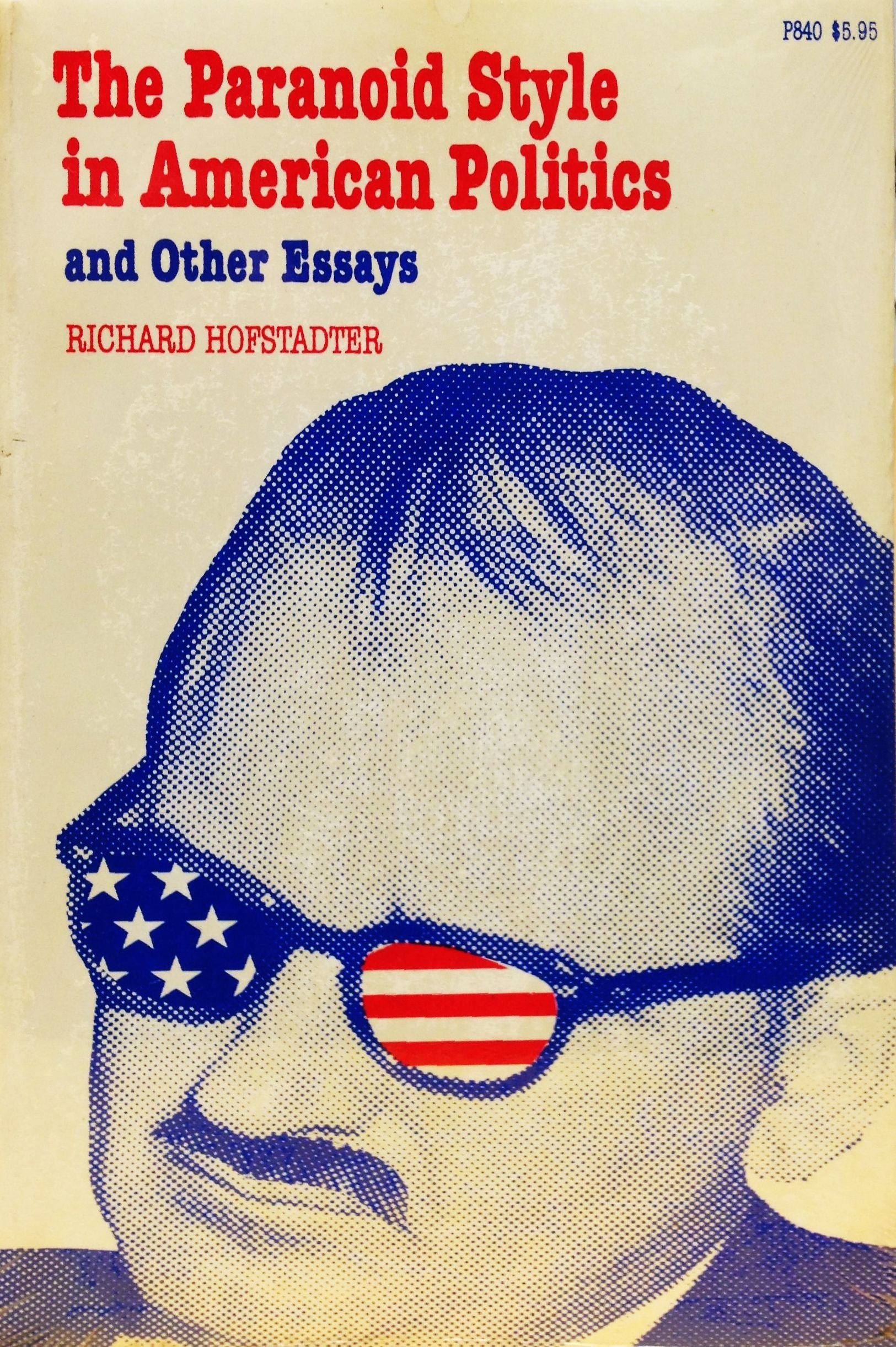We're all Birchers now. A recent Daily Kos/Civiqs poll found that 33% of Republicans believe QAnon is "mostly true," while another 23% believe "some parts" of the conspiracy theory are true. To these QAnoners, President Donald Trump is our savior. He is here to save us from world domination by Satan-worshipping pedophiles. In his 1964 Harpers essay, Historian Richard Hofstadter called this the "Paranoid Style in American Politics" in which hyperbole, suspicion, and conspiratorial fantasy are a timeless American tradition This concept is worth revisiting as an increasing number of people give new life to paranoid modes of political expression.
Richard Hofstadter mentored graduate students such as Eric Foner and Howard Zinn at Columbia University. He was Communist during the Great Depression. Although he abandoned the left, he never lost his critique of capitalism and reactionary pathologies. The rise of the John Birch Society in the 1950s in the wake of McCarthyism deeply troubled Hofstadter. To him, style was rhetoric; each 'paranoid style' going back to the 18th century "Illuminati" embraced an apocalyptic world view. In their quest for factual supremacy, they discarded historical analysis in favor of narratives centered around individual will. In contrast to serious historical work, the paranoid rarely considered the role that human limitations and imperfections play in our lives.
Formed in 1958 by candy manufacturer Robert Welch, the John Birch Society reached a membership of around 100,000 members during the 1964 Presidential campaign. It quickly became one of the largest right-wing activist groups. Welch proclaimed its goals were to combat ‘collectivism’ of FDR's New Deal and to return America to the values of ‘individualism.' Although the Birchers were a fringe group, several congressmen and even Republican presidential nominee Barry Goldwater openly admired the society's members. Following Goldwater’s defeat in 1964, the John Birch Society was effectively kicked out of the mainstream conservative movement due to concerns that its exaggerated was damaging their cause.
Welch's rhetoric was wildly imaginative. In his book The Politician, he claimed that there was plenty of hard evidence that proved President Eisenhower was a “dedicated, conscious agent of the Communist conspiracy. Welch believed the advance of international Communism in the early 1950s - in places such as Korea, China, and the Soviet Union - were made with outside help (suggesting collusion of American liberal elites). He claimed Dwight D. Eisenhower’s inauguration in 1953 saved the Soviet Union because Eisenhower was a “traitor” under Communist influences. Going further, Franklin Roosevelt, Dwight's brother Milton, George Marshall, John Foster Dulles, and Allen Foster Dulles were all believed to be secretly working for the Soviet Union.
Welch tried to establish credibility by claiming he spent nine years part-time and three years full-time studying the Communist conspiracy. He concluded that Vladimir Lenin envisioned that Communism would take over the world. He believed this would be accomplished not through force, but through Communist front organizations, propaganda, and by “colonizing minds.” His "studies" led him to conclude this was already accomplished in Hawaii and was beginning to unfold with every major anti-colonial movement in the third world. Even more, he asserted that the American media was at least 60% controlled by Communists. What made Welch’s speeches unique was his solution: organize a group of committed patriots to educate the American public.
A 1974 survey of Birchers’ opinions by Barabara S. Stone found that members were concerned with high taxes, inflation, international instability, and the encroachment of the civil rights movement. Members viewed themselves as “modern conservatives, but classic liberals.” Birchers overwhelmingly accepted the conspiracy theories of Robert Welch. Most members were college-educated and their income was higher than the average American. A large number of housewives belonged to the society. Birchers, much like QAnoners, came from a more affluent status.
QAnon originated in 4Chan message boards in 2017. In August, NBC News estimated that QAnon Facebook groups had millions of members. Commenting on QAnon followers, Trump said "I've heard these are people that love our country." he went even further, saying "if I can help save the world from problems, I am willing to do it. I’m willing to put myself out there." No analogy is perfect, but Barry Goldwater made similar remarks during his 1964 presidential bid. At the Republican convention in 1964, Goldwater proclaimed “Extremism in defense of liberty is no vice. Moderation in pursuit of justice is no virtue.” His comment was widely interpreted as a tacit endorsement of right-wing extremism When asked more specifically about Birchers, Goldwater said that they were the "finest people" he knew. Although Goldwater ultimately lost, the Republican Party's most ardent supporters increasingly embody his politics.
Conspiratorial thinking on the radical right is no abnormality. The 'paranoid style' grows and withers, but it never disappears completely. Martin Luther King Jr. publicly stated that there were "dangerous signs of Hitlerism" in the John Birch Society. The same can be said about diehard QAnoners. What is true is that the far-right reinvents anti-elitist rhetoric in order to make privilege popular. As Hofstadter wrote, truthers are "always manning the barricades of civilization" against an internal enemy that is easily identified. We need a clearly articulated politics based in class struggle now more than ever.

Comments
Post a Comment